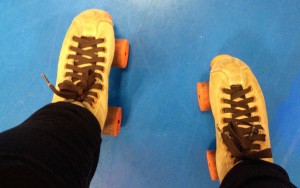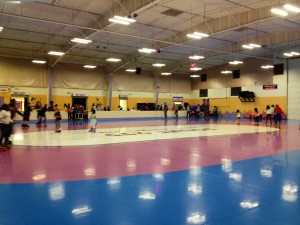On the first day of Thanksgiving break, a friend and I, having remained on-campus, seeing that it was a day warm enough for shorts, went on a rather scenic run through Proctor district, and from there, through an environmental sanctuary to the waterfront, where we lingered for breath and for beauty. Looking over the still water, we carefully climbed down the rocks and jumped onto the damp sand.
The water was still, its surface, smooth, so we picked up some stones and began to skip them. Rearing and whipping our arms forward, we watched as the pebbles ejected from our hands, like saucers across a starry night, over the water, touching down some distance away, and hopping from the momentum. Each step was marked by the appearance of concentric circles upon the glassy water. Two, three, four—we counted as each stone hopped farther, the water it splashed up raining in its wake.
“Here, try this one. It’s got a nice copper color.”
I whip my arm forward, turning my wrist slightly. A large splash means the stone has sunk, unfortunately, upon initial impact.
“Sorry, that was a waste. Here, you try this one.”
In this manner, we continue to throw stones across the water. When I get tired, I sit on a rock, and watch my friend lob stones. He’s on a roll, I think, as he approaches, with each attempt, a legendary five-hop.
On a three-hop throw, I watch the water ripple away from the place where the skip has died. A thin circle, vaguely defined, expands in all directions; it is approaching the shore upon which I sit and the shore opposite ours. In this latter direction, I watch it until it disappears, indistinguishable from the lines of movement on the surface of the water (which is a little less calm now). Still, I follow the circle as it expands, if only an imaginary one supplied by my mind, to the neck of the basin, and from there, as it bends around the promontory that obstructs its way, to the horizon, where I can follow it no more. But I know that the ripple is still travelling. It will travel until it reaches all the shores, which it will reach at different times—but it will never stop until it has touched land in 360-degrees.
If I subscribe to the belief that an action is like a stone in the water, that it creates a rippling effect, then I suppose I should think of everything I do as having the potential to carry me to far and distant shores.
Yet on Thanksgiving Day, with a slight rain gracing my window, I wonder if that ripple has reached home.




